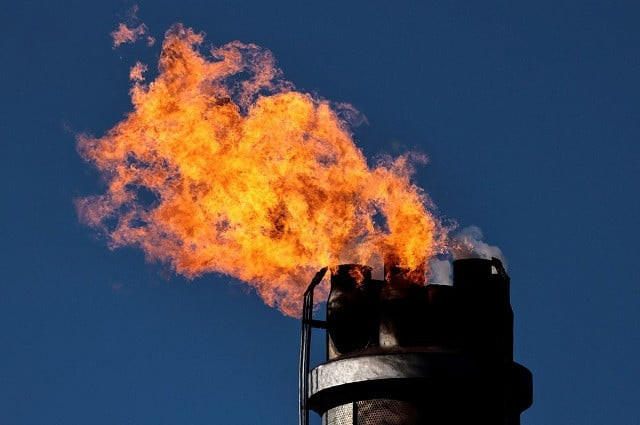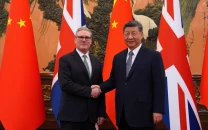Russia in receipt of $63b for fossil fuels since start of war
Germany top buyer of Russian fossil fuels, with estimated imports of $9.5 billion

European Union Member States, China and other countries paid Russia an estimated €63 billion for fossil fuels since the beginning of the war two months ago, new data finds.
According to a detailed tracker of Russian oil, gas and coal shipments and pipeline exports by the Centre for Research on Energy and Clean Air (CREA), the combination of continued imports of oil and gas through pipelines and high fuel prices have meant that Russia’s export revenue is still far higher than in earlier years.
Germany was the biggest importer, paying an estimated €9.1 billion for Russian fossil fuels while Italy paid €6.9 billion.
Germany has come under criticism for its practices from Kira Vanke, head of the Center for Climate and Foreign Policy at the German Council on Foreign Relations, who said “while trade regularly occurs across different governance models, it is unacceptable that Germany continues high fossil fuel imports from a country which has blatantly and repeatedly violated international law."
She advocated for scaling up renewables in answer to this challenge, rather than fostering dependencies on fossil fuels, like fracking gas or nuclear energy.
Also read: Germany aims to find alternative to Russian oil
China totaled €6.7 billion in payments, followed by the Netherlands with €5.6 billion, Turkey with €4.1 billion and France with €3.8 billion.
However, the EU was responsible for 71% of Russia’s total income from oil, gas and coal, worth approximately €44 billion.
According to Lauri Myllyvirta, a lead analyst at CREA, fossil fuel exports are a key enabler of Putin's regime and many other rogue states.
“Continued energy imports are the major gap in the sanctions imposed on Russia. Everyone who buys these fossil fuels is complicit in the horrendous violations of international law carried out by the Russian military," she said.
"We encourage all governments and corporate buyers of Russian fossil fuels to end purchases and impose punitive tariffs during any transition period," she added.
She said it would be far more impactful to replace all fossil fuel imports in the medium term with clean, non-fossil energy and energy efficiency measures if investments are started now than merely rearranging the global trade flows of fossil fuels with greater economic, health and national security benefits.
The analysis noted that if countries in which a quarter of Russia's fossil fuel shipments arrive take action to end purchases and transshipments, they would be highly impactful choke points.
The five EU ports noted are Rotterdam in the Netherlands, Maasvlakte also in the Netherlands, Trieste in Italy, Gdansk in Poland and Zeebrugge in Belgium.
Also read: India capitalises on Russian oil imports previously destined for Europe
CREA's research also shows that even the current limited sanctions are having an effect as crude oil shipments from Russia to foreign ports fell by 20% in the first three weeks of April, compared with the January-February period before the start of the war.
The analysis found a clear pick-up in oil shipments to India, Egypt and other "unusual" destinations for Russian exports, but said it is nowhere near enough to make up for even the modest fall in exports to Europe.
"Russia's war against Ukraine is largely funded by the aggressor's coal, oil and gas exports. Those same resources are the main cause of another global danger - climate change. This is a historical moment," Anna Ackermann, climate and energy policy specialist, and founding member of the Ukrainian NGO Centre for Environmental Initiatives Ecoaction said.
"While Russia is trying to find new buyers for their fossil fuel exports to keep financing their military ambitions and killings of civilians, we have an opportunity as a global community to recognize that fossil fuels create both war and climate destruction. Today we can once and for all make a crucial step by choosing energy security and resilience through advancing the clean energy transition," she underlined.



















COMMENTS
Comments are moderated and generally will be posted if they are on-topic and not abusive.
For more information, please see our Comments FAQ